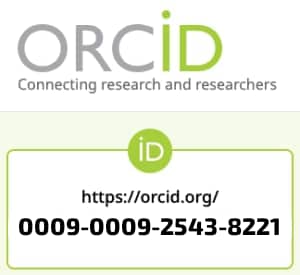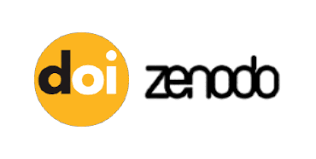About the Journal
AJST Journal Policies
Journal Publication Criteria
- Journal Scope: Original studies that contribute to the development of theoretical and practical knowledge in all fields of engineering, applied sciences, and technology.
- Novelty: The research must represent a new and innovative addition to knowledge in its field.
- Originality: Manuscripts must be original and must not have been previously published or be under consideration for publication elsewhere.
- Scientific Significance: The research must have clear importance and impact on the advancement of the discipline.
- Sound Methodology: The research must be based on rigorous and replicable methodological foundations.
- Clarity and Accuracy: The language of the research must be clear and concise, and the data and results must be accurate and error-free.
- Research Ethics Compliance: The research must adhere to all ethical standards endorsed by the Committee on Publication Ethics (COPE).
- Paper Length: The total number of pages should not exceed 15.
- Abstract Length: The abstract should be concise and must not exceed 250 words.
- Language: Manuscripts may be submitted in either English or Arabic, provided the language is sound and the terminology is correct.
Peer Review Policy
- Arriad Journal of Science and Technology (AJST) employs a double-blind peer review system, where both authors and reviewers remain anonymous. Each submitted manuscript is evaluated based on: originality, innovation, clarity, sound methodology and theory, logical analysis, and the significance of the research.
- The editorial board initially reviews each manuscript. If it is deemed suitable and relevant to the journal's scope, it is sent to a minimum of two external reviewers for evaluation.
- The final decision will be one of the following: Accept, Major/Minor Revisions Required (with resubmission), or Reject.
- The peer review process is typically completed within 4 weeks from the date of submission.
Plagiarism Detection Policy
- All manuscripts submitted to AJST are screened using Turnitin plagiarism detection software. Papers containing plagiarism will be rejected. The permitted similarity index is 20%.
- Any work proven to contain plagiarism or unauthorized duplication will be immediately rejected. If discovered after publication, the article will be retracted, and all readers will be publicly notified.
Copyright and Licensing Policy
- Copyright: Arriad Journal of Science and Technology retains the copyright for all published material.
-
All articles published in the journal are licensed under: Creative commons (CC BY-NC 4.0). This Allows users to download, copy, distribute, print, search, or link to the full texts of articles stored in the publications Archive, provided that this is done for non-commercial purposes. Distribution of the article is not permitted if it is changed or edited in any way. By publishing in AJST, authors agree to the terms of this copyright policy.
Open Access Policy
The Arriad Journal of Science and Technology is an open access journal. All articles can be downloaded free of charge from the journal's website. Users are permitted to read, download, print, or cite the articles without requiring prior permission from the publisher or the author. The journal retains the author's right to hold the copyright of their work.
Appeals and Complaints Policy
If a manuscript is rejected, the corresponding author receives a rejection notice without the detailed reviewers' comments. If the author wishes to appeal the decision, a written and justified request must be submitted. The editorial board may provide a summary of the reasons for rejection while maintaining the confidentiality of the reviewers' identities. Each appeal is considered individually, and the final decision is not subject to further debate.
Data Sharing Policy
- Unique Identifier: All datasets must have a unique persistent identifier (e.g., a DOI).
- Repository: Data must be deposited in a recognized and trusted repository.
- Format: Data should be formatted in standard, open file formats (e.g., CSV, JSON) to facilitate reuse by various software tools and applications.
- Accessibility: Data must be made publicly available at the time of article publication.
- Licensing: Data must be published under an explicit license that clearly states the terms of use.
- Citation: Any datasets used in the study must be fully cited in the reference list, just as journal articles are.
Authors' Responsibilities
- Originality and Novelty: Submitted research must be original, must not have been previously published, and must not be under consideration by any other journal or platform. Plagiarism in all its forms (copying text, ideas, or results without proper attribution) is considered unethical and unacceptable.
- Source Disclosure and Citation: Authors must acknowledge all works that influenced their research and cite sources accurately.
- Conflict of Interest Disclosure: Authors must disclose any financial or personal relationships that could affect the results or their interpretation. All sources of financial support for the research must be declared.
- Adherence to Manuscript Preparation Standards: Authors must strictly adhere to the journal's publication guidelines regarding format, structure, and methodology.
- Authorship: Authorship should be limited to those who have made a significant intellectual contribution to the research's design, execution, analysis, or writing. All other contributors should be acknowledged in a "Acknowledgements" section. All listed authors must approve the final version of the manuscript and its submission for publication.
- Formatting: Authors must follow the journal's "Instructions for Authors," including guidelines on structure, citation style, word count, and other formatting requirements.
- Accountability: Authors bear full responsibility for the content of their research. The journal, its editors, or the publisher are not liable for the accuracy, completeness, or usefulness of any published information.
- Errors in Published Works: If an author discovers a significant error in their published work, it is their obligation to promptly notify the Editor-in-Chief and cooperate in retracting or correcting the paper through publishing a "Correction Notice."
Reviewers' Responsibilities
- Objectivity and Bias: The peer review process must be conducted objectively, with fair assessments based solely on scientific merit, without personal or institutional bias.
- Confidentiality: All manuscripts received for review are confidential documents. Reviewers must not discuss, share, or disclose any information from them to anyone except the Editor-in-Chief.
- Timeliness: Reviewers are expected to submit their reports on time. If they cannot meet the deadline, they must immediately notify the Editor-in-Chief.>
- Conflict of Interest Disclosure: Reviewers must decline to review a manuscript if they have a conflict of interest (academic competition, personal or professional relationship with any author, etc.) and inform the Editor-in-Chief immediately.
Editorial Board Responsibilities
- Publication Decisions: The Editor-in-Chief and editorial board members make decisions to accept or reject a manuscript based solely on its scientific importance, originality, clarity, relevance to the journal's scope, and the reviewers' reports. Publication decisions cannot be reversed after they are issued.
- Fairness and Confidentiality: Editorial board members pledge to evaluate manuscripts based solely on their intellectual content without regard to any other considerations.
- Confidentiality: The Editor-in-Chief and editorial board maintain the confidentiality of all manuscript details and the identities of reviewers and authors throughout the peer review process.
- Conflict of Interest: Editorial board members must not use information or ideas from submitted manuscripts for personal gain. They must recuse themselves from considering any manuscript where they have a conflict of interest.
- Investigation of Misconduct: If unethical conduct is suspected, the Editor-in-Chief is obligated to investigate it and reach an appropriate resolution, even if it is discovered years after publication. This includes publishing corrections or retracting papers.
- Journal Development: The editorial board must work to elevate the journal's standing through periodic self-assessment, improving the website, and continuously pursuing indexing and archiving in renowned international databases in consultation with the journal's advisory committee. The Journal's Advisory Committee is a technical committee of national and international experts. It provides technical and scientific guidance to the editorial board to enhance the journal's academic standards.
Post-Publication Policies
- Retraction: In cases of proven data falsification, plagiarism, or significant errors, an article may be retracted, with a public notice issued to that effect.
- Indexing and Archiving: The editorial board works to index and archive the journal in leading academic databases to enhance its reach and credibility.>
Publication Fees:
- The publication fees for the journal are nominal, intended to encourage scientists and researchers to publish thier research work in Arriad Journal of Science and Technology (AJST).
- All articles in the AJST are published under full open access, free of charge.
The editorial board sincerely thanks readers, authors, and scientists for their support and cooperation. For further information, please contact us at: ajst@shomokh.edu.ly
Kind Regards
Editorial Team









